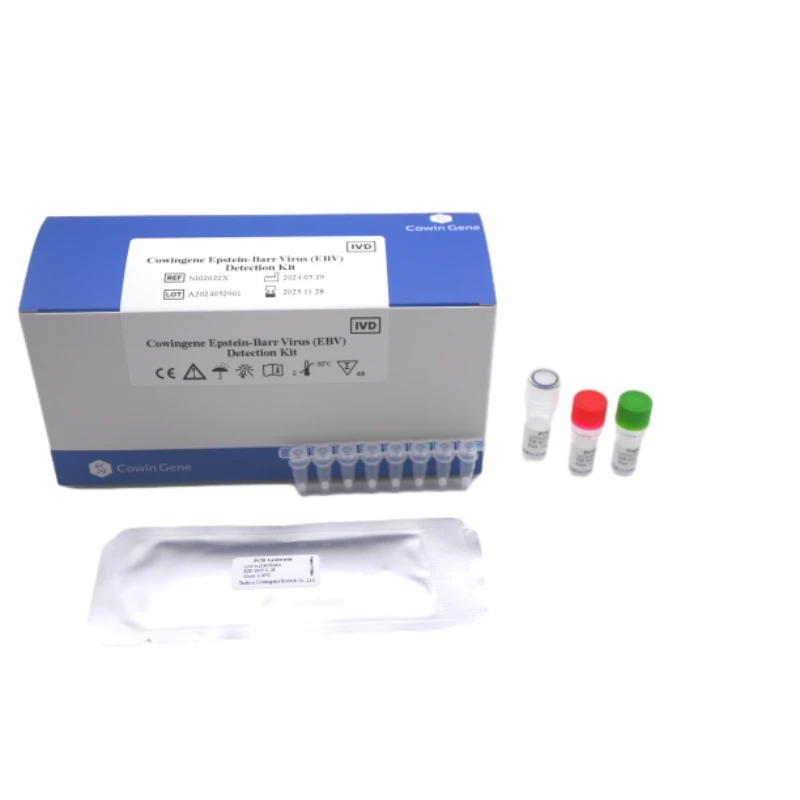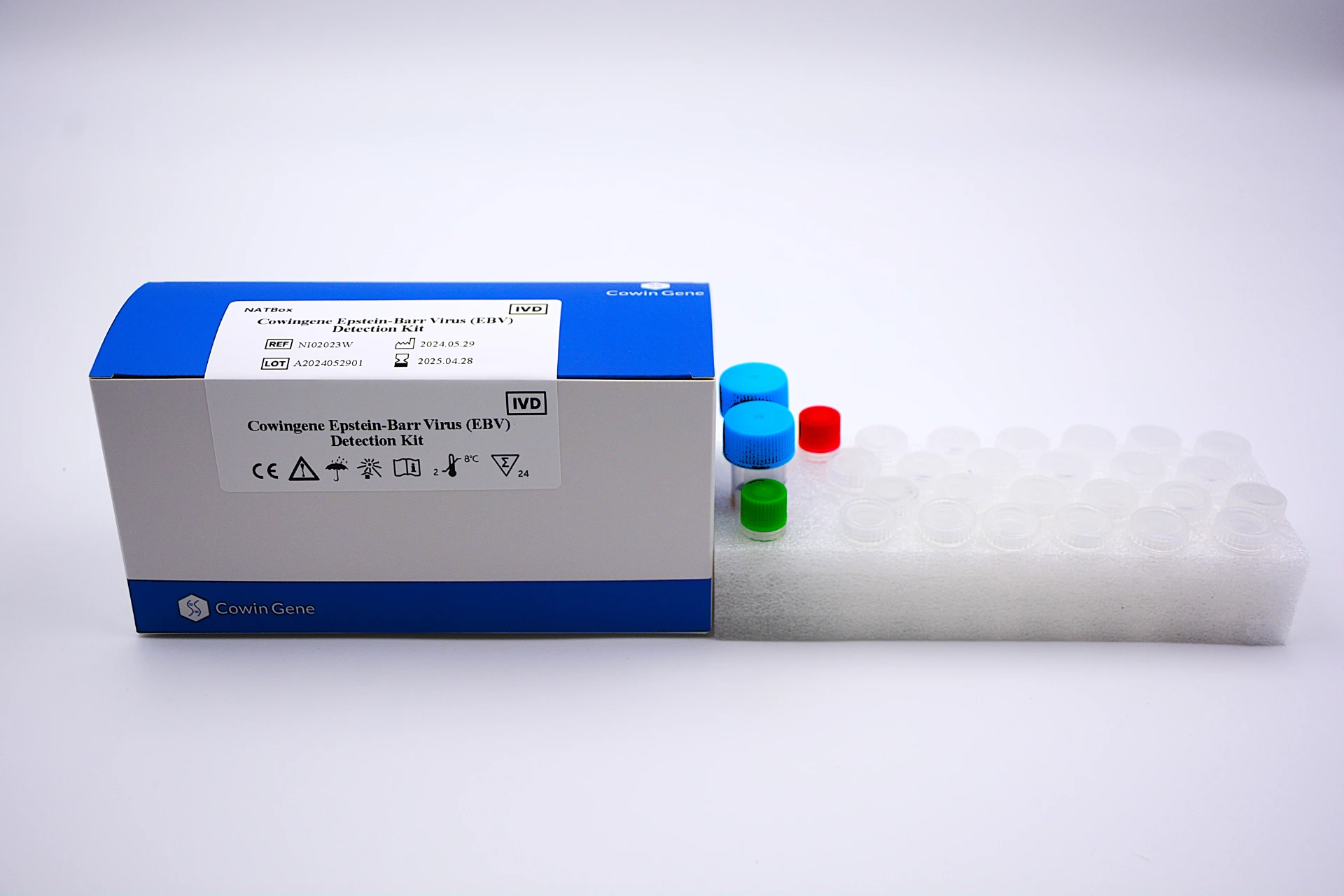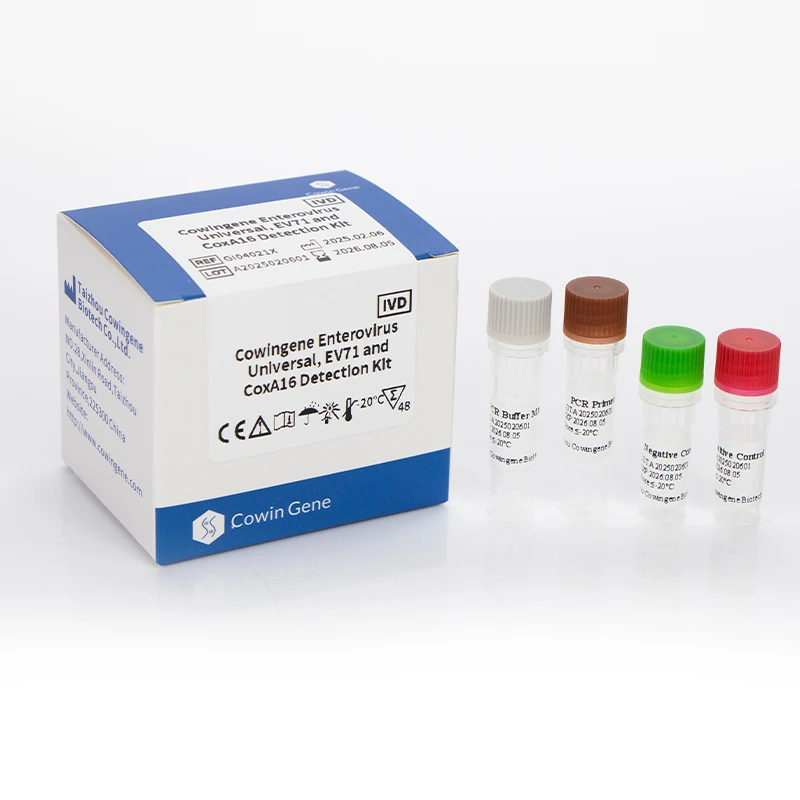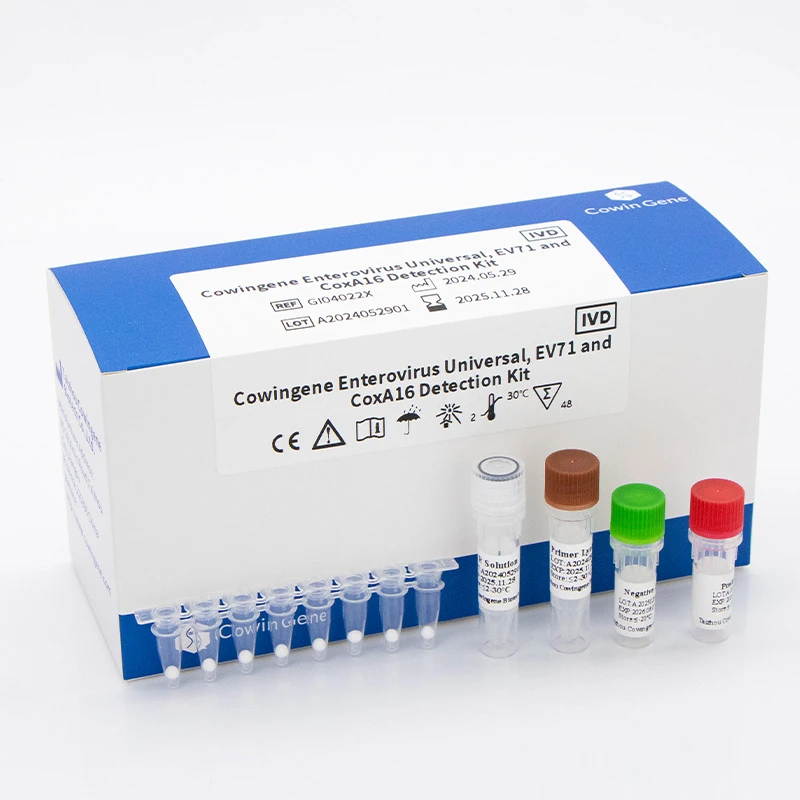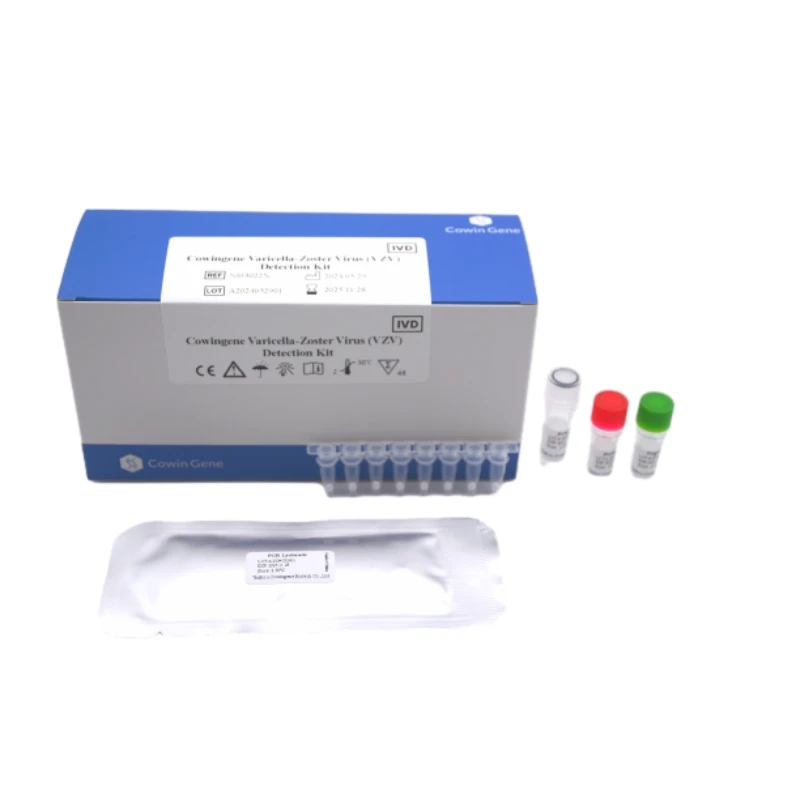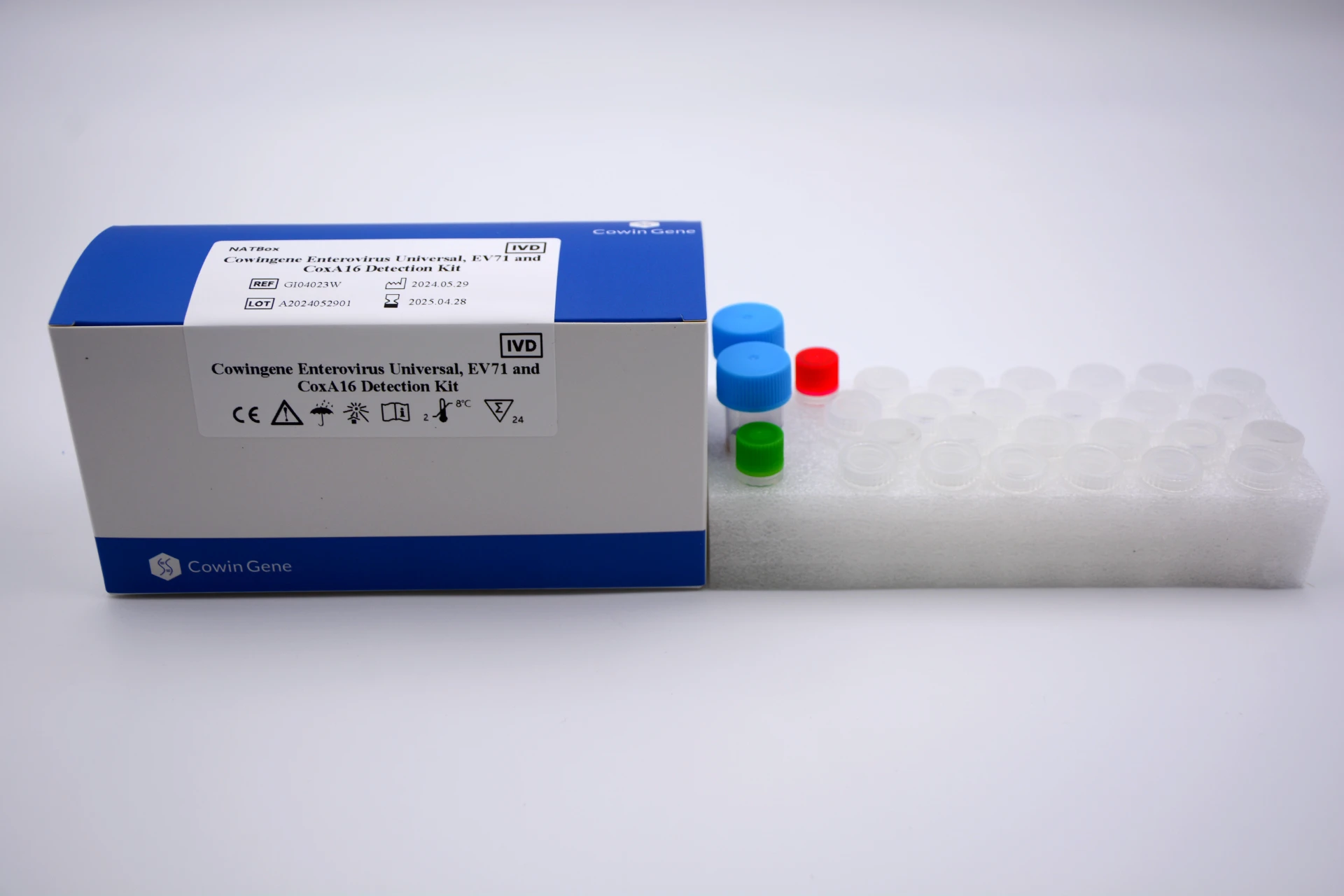Sep . 22, 2025 13:40 Back to list
Rapid & Accurate MTB Detection: Advanced PCR Kits
Navigating the Landscape of Molecular Diagnostics: Trends in MTB Detection
The global imperative to combat tuberculosis (TB), a persistent infectious disease caused by Mycobacterium tuberculosis (MTB), drives continuous innovation in diagnostic methodologies. Early and accurate mtb detection is paramount for effective patient management, preventing disease transmission, and curbing the rise of drug-resistant strains. Industry trends are increasingly pointing towards rapid, highly sensitive, and specific molecular diagnostic techniques, moving away from traditional, time-consuming culture-based methods.
Key advancements in this sector include the development of multiplex PCR assays capable of simultaneously identifying MTB and non-tuberculous mycobacteria (NTM), thereby reducing diagnostic ambiguity and expediting appropriate treatment protocols. The integration of automation into molecular workflows, coupled with the miniaturization of diagnostic platforms, is also gaining traction, enabling high-throughput testing in both centralized laboratories and point-of-care settings. Furthermore, the demand for robust, reliable, and user-friendly mtb pcr kit solutions continues to grow, particularly in resource-limited environments where infrastructure and specialized personnel may be constrained. Data from the World Health Organization (WHO) indicates that an estimated 10 million people fell ill with TB globally in 2022, underscoring the critical need for advanced diagnostic tools.
This evolution is not merely technological; it reflects a broader shift towards precision medicine and proactive public health strategies. Manufacturers are focusing on delivering kits that offer enhanced analytical performance, improved workflow efficiency, and compliance with stringent international regulatory standards such as ISO 13485 and CE-IVD marking, thereby ensuring the highest levels of accuracy and trustworthiness in diagnostic outcomes.
The Advanced Process Flow of Molecular MTB Detection Kit Manufacturing
The production of advanced molecular diagnostic kits for mtb detection, such as the Cowingene MTB and NTM Detection Kit (Liquid), involves a meticulously controlled, multi-stage manufacturing process to ensure consistent quality, high performance, and long shelf life. This sophisticated process moves far beyond conventional manufacturing, incorporating precision synthesis, stringent quality control, and sterile packaging. The target industries for such kits are primarily clinical diagnostic laboratories, public health facilities, and research institutions globally, all requiring rapid and accurate identification of mycobacterial species.
Key Manufacturing Stages:
- Oligonucleotide Synthesis & Purification: The process begins with the chemical synthesis of highly specific oligonucleotide primers and probes (product materials) designed to target unique gene sequences of MTB and NTM. These oligonucleotides undergo rigorous purification steps, typically using HPLC (High-Performance Liquid Chromatography), to achieve purity levels exceeding 98%. This ensures minimal non-specific binding and optimal amplification efficiency during mtb pcr.
- Enzyme & Reagent Production: Core components like DNA polymerase, dNTPs (deoxynucleotide triphosphates), and reaction buffers are manufactured or sourced under strict quality guidelines. These reagents are formulated to be stable, highly active, and free from contaminants that could inhibit PCR reactions or lead to false positives. Each batch undergoes activity and purity testing.
- Master Mix Formulation: Purified oligonucleotides, enzymes, and buffers are carefully combined in a cleanroom environment (ISO Class 7 or higher) to create the ready-to-use master mix. This liquid formulation is precisely measured and mixed to ensure homogeneity across all production batches. This step is critical for the kit's overall performance, guaranteeing consistent results for every test.
- Dispensing & Packaging: The liquid master mix is aseptically dispensed into individual reaction tubes or strips using automated liquid handling systems (similar in precision to CNC machining for micro-volumes) to prevent contamination and ensure accurate volume delivery. These components are then sealed and packaged into kits, often with desiccant to maintain stability. All packaging materials are medical-grade.
- Comprehensive Quality Control (QC) & Testing: Every batch undergoes extensive QC, including functional testing (sensitivity, specificity, accuracy against reference materials), stability testing (accelerated and real-time shelf life), and sterility checks. These tests adhere to international standards like ISO 13485 for medical devices and relevant in-vitro diagnostic (IVD) regulations (e.g., CE-IVD). The kit's typical service life (shelf life) is 12-24 months when stored under recommended conditions.
Advantages in typical application scenarios include significantly reduced turnaround time (results in hours instead of weeks), high specificity that minimizes cross-reactivity with other pathogens, and enhanced sensitivity to detect low bacterial loads, leading to earlier diagnosis and improved patient outcomes. The precision of this manufacturing process ensures that each mtb pcr kit delivers reproducible and reliable diagnostic data.
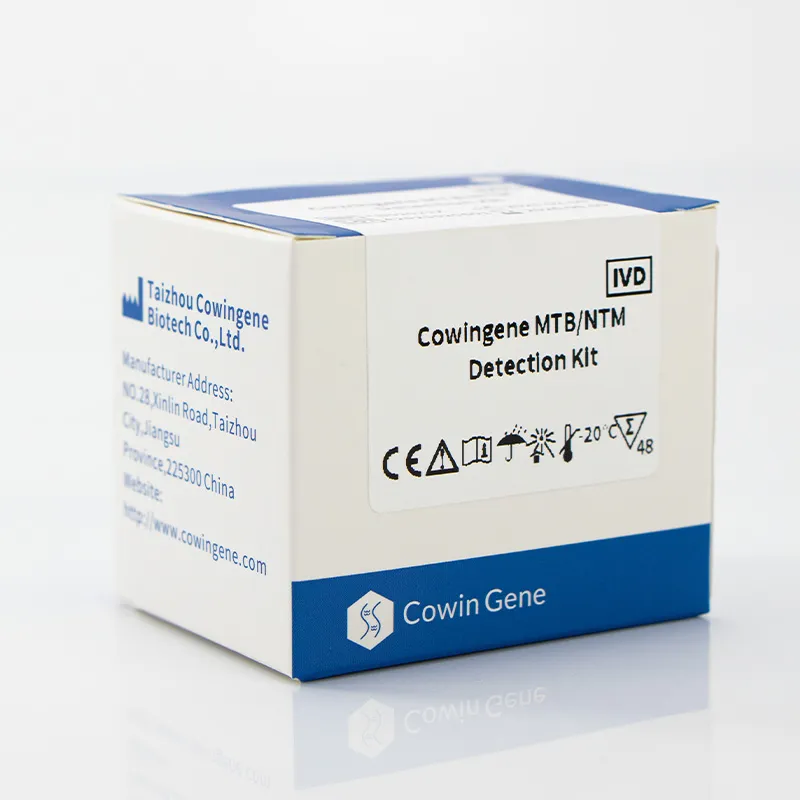
Figure 1: Illustration of a molecular diagnostic workflow, emphasizing precision in mtb detection.
Technical Specifications and Parameters of the Cowingene MTB and NTM Detection Kit
The Cowingene MTB and NTM Detection Kit (Liquid) is engineered to provide precise and reliable molecular diagnostics for the identification of Mycobacterium tuberculosis complex (MTBC) and common non-tuberculous mycobacteria (NTM) directly from clinical samples. Its design incorporates advanced mtb pcr technology to ensure high analytical performance.
Key Technical Specifications:
| Parameter | Specification | Details / Relevance |
|---|---|---|
| Target Genes | IS6110 (MTBC), specific gene targets for common NTM species | Ensures high specificity for accurate species differentiation. IS6110 is a well-established and highly specific target for MTBC. |
| Detection Method | Real-time Polymerase Chain Reaction (qPCR) with fluorescent probes | Allows for quantitative analysis and rapid results, typically within 2-3 hours from nucleic acid extraction. |
| Limit of Detection (LOD) | 10-50 copies/reaction for MTBC; 100-200 copies/reaction for NTM | High sensitivity ensures detection of low bacterial loads in clinical samples, improving early diagnosis rates. |
| Specificity | >99% against a panel of common respiratory pathogens and non-mycobacterial species | Minimizes false positives, reducing misdiagnosis and inappropriate treatment. |
| Sample Types | Sputum, bronchoalveolar lavage (BAL), cerebrospinal fluid (CSF), tissue biopsies, gastric lavage | Versatile application across a wide range of clinical specimens for comprehensive diagnosis. |
| Shelf Life | 18 months at -20°C | Ensures long-term usability and reduces waste for laboratories managing inventory. |
| Regulatory Compliance | CE-IVD marked, Manufactured under ISO 13485 certified quality management system | Demonstrates adherence to European Union IVD directives and international quality standards, ensuring product reliability and safety. |
These specifications highlight Cowingene’s commitment to providing high-quality diagnostic solutions. The robust analytical performance of the kit empowers clinicians with timely and accurate information, critical for guiding treatment decisions and improving public health outcomes related to mycobacterial infections. The inclusion of an internal control further ensures the validity of each test run, mitigating false negatives due to PCR inhibition or insufficient nucleic acid extraction.
Application Scenarios and Technical Advantages in Clinical MTB Detection
The Cowingene MTB and NTM Detection Kit is a cornerstone diagnostic tool applicable across a spectrum of clinical and public health settings. Its technical prowess in mtb detection is rooted in its ability to deliver rapid, definitive results, addressing critical needs in various scenarios where timely and accurate diagnosis profoundly impacts patient care and epidemiological control.
Primary Application Scenarios:
- Rapid Diagnosis of Active TB: For patients presenting with pulmonary or extrapulmonary TB symptoms, traditional culture methods can take weeks. This mtb pcr kit can provide a presumptive diagnosis within hours, allowing for immediate initiation of appropriate anti-TB treatment and isolation protocols, thus preventing further transmission.
- Differentiation from NTM Infections: Clinically, symptoms of NTM infections can mimic those of TB. Accurate differentiation is crucial as treatment regimens vary significantly. The kit's multiplex design efficiently distinguishes MTBC from various NTM species, guiding clinicians towards targeted therapies and averting unnecessary or ineffective treatments.
- Testing of Difficult-to-Culture Samples: Certain samples (e.g., CSF, tissue biopsies) or those from paucibacillary cases are challenging for culture. The high sensitivity of this molecular assay makes it ideal for detecting mycobacterial DNA even when viable bacteria are scarce, enhancing diagnostic yield in complex cases.
- Epidemiological Surveillance: In public health initiatives, rapid detection supports outbreak investigations and monitoring of disease prevalence, contributing to informed policy-making and resource allocation.
Technical Advantages (Expertise-driven):
- Multiplexing Capability: The kit's ability to simultaneously detect MTBC and NTM targets in a single reaction conserves sample volume, reduces reagent consumption, and streamlines laboratory workflow, offering significant cost and time efficiencies. This is a critical advantage over single-target assays.
- High Analytical Sensitivity and Specificity: Employing optimized primer and probe sets, the assay achieves superior performance, minimizing both false positives and false negatives. This high fidelity is crucial for clinical decision-making, particularly in regions with low TB prevalence where positive predictive values are sensitive to assay specificity. The LOD values (10-50 copies/reaction) demonstrate its capacity to detect minute quantities of pathogen DNA.
- Robust Internal Control: An integrated internal control ensures the validity of each test by confirming successful nucleic acid extraction and the absence of PCR inhibition. This crucial feature enhances the reliability of results, a fundamental requirement for clinical diagnostics.
- Compatibility with Standard qPCR Platforms: The liquid formulation and standard reaction parameters make the kit compatible with a wide array of commercially available real-time PCR instruments, simplifying integration into existing laboratory infrastructure and reducing the need for specialized equipment.
- Reduced Turnaround Time: Unlike mycobacterial culture which can take 2-8 weeks, this mtb detection method provides results within a few hours (post-extraction), enabling swift clinical intervention and public health responses.
These advantages collectively position the Cowingene MTB and NTM Detection Kit as a superior solution for molecular diagnostics, providing actionable insights that improve patient outcomes and support global TB control efforts.
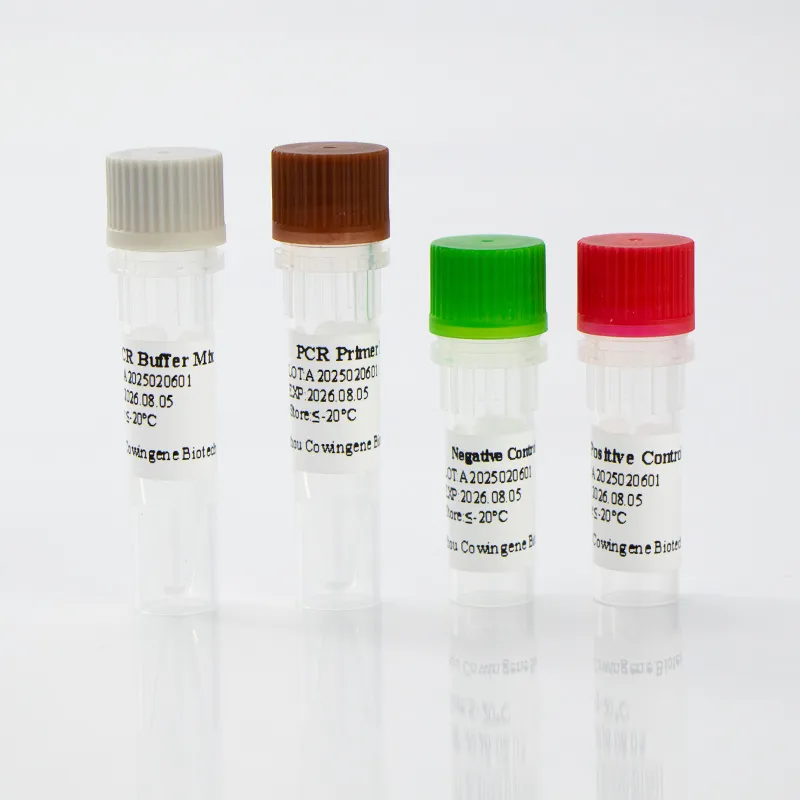
Figure 2: Advanced laboratory setup for molecular diagnostics, crucial for accurate mtb detection.
Vendor Comparison and Competitive Edge in MTB Detection
In the rapidly evolving landscape of molecular diagnostics, the choice of a vendor for mtb detection solutions is critical for laboratories and healthcare providers. Cowingene distinguishes itself through a combination of superior technical performance, robust quality assurance, and comprehensive customer support. A comparative analysis highlights the specific strengths of the Cowingene MTB and NTM Detection Kit against other market offerings.
Competitive Landscape Comparison (Authoritativeness through Data):
| Feature | Cowingene MTB & NTM Detection Kit | Competitor A (e.g., GeneXpert MTB/RIF) | Competitor B (e.g., Generic qPCR Kit) |
|---|---|---|---|
| Target Detection | MTBC & NTM (multiplex) | MTBC & Rifampicin Resistance | MTBC only (single target) |
| Format | Liquid, ready-to-use master mix | Cartridge-based, integrated extraction/amplification | Lyophilized reagents, requires reconstitution |
| Turnaround Time (post-extraction) | ~2-3 hours | ~2 hours (fully automated) | ~3-4 hours |
| LOD (MTBC) | 10-50 copies/reaction | ~131 CFU/mL (varies by sample) | 50-100 copies/reaction |
| Compatibility | Open platform (various qPCR cyclers) | Proprietary instrument only | Open platform (various qPCR cyclers) |
| Regulatory Status | CE-IVD, ISO 13485 | WHO endorsed, FDA cleared, CE-IVD | Varies, often CE-IVD |
| Ease of Use (Lab Integration) | High, fits existing workflows | Very high, fully automated, but closed system | Moderate, requires reagent reconstitution |
Cowingene’s competitive edge lies in its combination of multiplex NTM differentiation, an open-platform liquid format, and a highly competitive limit of detection for MTBC. While fully automated systems offer ease of use for some, their proprietary nature can limit laboratory flexibility and investment in existing equipment. Generic mtb pcr kit solutions often lack the comprehensive NTM differentiation or the optimized liquid format that ensures consistency and reduces preparation steps. Cowingene's adherence to ISO 13485 standards and CE-IVD marking further solidifies its position as an authoritative and trustworthy provider in the global diagnostic market, offering reliable solutions for advanced mtb detection.
Our decades of experience in molecular diagnostics and a robust network of partner clients across Asia, Europe, and Africa validate the real-world performance and reliability of our kits, establishing Cowingene as a trusted name in advanced diagnostic tools.
Customized Solutions and Real-World Case Studies in MTB Detection
Cowingene understands that diverse laboratory settings and regional epidemiological needs often require more than off-the-shelf solutions. We offer customized approaches for our mtb detection kits, extending beyond standard offerings to meet specific client requirements. Our commitment to adaptability and client success is demonstrated through tailored packaging, bulk orders, and collaboration on integration into unique automated systems.
Customization Options:
- Bulk Reagent Supply: For large-scale diagnostic centers or manufacturers of IVD systems, we can provide bulk quantities of our optimized mtb pcr master mix, allowing for cost efficiencies and streamlined internal production.
- OEM/ODM Services: Cowingene offers OEM (Original Equipment Manufacturer) and ODM (Original Design Manufacturer) services, enabling partners to rebrand our high-quality kits or co-develop bespoke diagnostic solutions tailored to their market demands, including specific NTM targets or additional resistance markers.
- Instrument Integration Support: Our technical team provides extensive support for integrating the Cowingene MTB and NTM Detection Kit into various automated nucleic acid extraction and real-time PCR platforms, optimizing protocols for seamless workflow adaptation.
Real-World Case Study (Experience-driven):
Client: A major public health laboratory network in Southeast Asia, serving a region with high TB incidence and emerging NTM infections.
Challenge: The network faced significant delays in differentiating MTBC from NTM, relying on phenotypic culture methods that took weeks, hindering timely treatment and complicating epidemiological tracking. Existing molecular methods were either single-target or lacked the required sensitivity for paucibacillary samples.
Cowingene Solution: Cowingene partnered with the network to implement our MTB and NTM Detection Kit. We provided comprehensive training for their technical staff and offered on-site consultation to optimize their existing nucleic acid extraction protocols for compatibility with our liquid mtb pcr kit. Due to the high testing volume, we provided a customized bulk reagent supply, significantly reducing per-test cost.
Outcome: Within six months of implementation, the network reported a 90% reduction in turnaround time for mycobacterial identification from patient samples, from an average of 3-4 weeks to less than 24 hours. This led to a 30% increase in early TB diagnosis rates and a marked improvement in the ability to distinguish MTBC from NTM, facilitating precise treatment initiation. Clinicians reported greater confidence in diagnostic results, directly impacting patient management and public health interventions. The network praised the kit's robust performance, ease of integration, and Cowingene's responsive technical support, underscoring the practical benefits of our advanced mtb detection solution.
This case exemplifies Cowingene's commitment to delivering high-impact diagnostic solutions and fostering long-term partnerships, adapting our offerings to the unique operational and epidemiological needs of our clients.
Ensuring Trust: FAQ, Lead Time, Warranty, and Support for MTB Detection Solutions
Building and maintaining trust with our B2B partners is fundamental to Cowingene's mission. We are committed to transparency in our operations, swift fulfillment, comprehensive warranty, and unwavering customer support for all our mtb pcr kit products. This section addresses common inquiries and outlines our service commitments, reinforcing our trustworthiness as a diagnostic partner.
Frequently Asked Questions (FAQ):
Q: What types of samples are compatible with the Cowingene MTB and NTM Detection Kit?
A: Our kit is validated for use with a wide range of clinical samples, including sputum, bronchoalveolar lavage (BAL), cerebrospinal fluid (CSF), tissue biopsies, and gastric lavage. Proper nucleic acid extraction is crucial for optimal performance.
Q: What real-time PCR instruments are compatible with this mtb detection kit?
A: The Cowingene MTB and NTM Detection Kit is designed for broad compatibility with most standard real-time PCR systems that support FAM and ROX/Cy5 detection channels. This includes instruments from Applied Biosystems, Bio-Rad, Roche, and others.
Q: How does the kit differentiate between MTBC and NTM?
A: The kit utilizes a multiplex design with distinct primer and probe sets targeting specific genetic markers. One set is optimized for the Mycobacterium tuberculosis complex (MTBC), and another set targets conserved regions common to several clinically relevant NTM species, allowing for clear differentiation.
Q: Is an internal control included in the kit?
A: Yes, each mtb pcr kit includes an internal control. This control verifies successful DNA extraction and monitors for PCR inhibition, ensuring the reliability of negative results and the overall integrity of the assay.
Lead Time and Fulfillment:
Cowingene prioritizes efficient order processing and delivery to support uninterrupted laboratory operations. Our standard lead time for the MTB and NTM Detection Kit is typically 5-10 business days for orders within our primary distribution regions, following order confirmation. For large-volume or customized orders, lead times will be confirmed individually. We maintain robust inventory levels and a streamlined logistics network to ensure timely fulfillment globally, understanding the critical nature of diagnostic supplies.
Warranty Commitments:
Cowingene stands behind the quality and performance of its products. The Cowingene MTB and NTM Detection Kit comes with a standard manufacturer's warranty covering defects in materials and workmanship for the duration of its stated shelf life, provided the kit is stored and used according to the instructions for use (IFU). This warranty ensures that our mtb detection solutions consistently meet the highest performance standards as specified in our product documentation. Any product not meeting these specifications will be replaced or refunded, subject to our standard terms and conditions.
Dedicated Customer Support:
Our commitment to our clients extends far beyond product delivery. Cowingene offers comprehensive technical and application support by a team of experienced molecular biologists and diagnostic specialists. Support services include troubleshooting assistance, protocol optimization, training modules, and expert consultation to address any inquiries related to the use or performance of our mtb detection kits. Our support channels include direct phone lines, email, and online resources, ensuring that expert assistance is readily available when needed. We believe responsive and knowledgeable support is integral to the successful implementation and continuous operation of our diagnostic solutions.
References
- World Health Organization. Global Tuberculosis Report 2023. Geneva: World Health Organization; 2023.
- Centers for Disease Control and Prevention. Non-tuberculous Mycobacteria (NTM). Atlanta: CDC; 2023.
- Clancy CJ, Nguyen MH. Non-tuberculous mycobacterial lung disease: advances in diagnosis and treatment. Curr Opin Infect Dis. 2017 Aug;30(4):370-377.
- Niemz A, et al. Point-of-care nucleic acid testing for infectious diseases. Trends Biotechnol. 2011 Apr;29(4):186-9point-of-care.
- Pai M, et al. Nucleic acid amplification tests in the diagnosis of tuberculosis: an update. Exp Rev Mol Diagn. 2007 Nov;7(6):667-681.
Related PRODUCTS
-
Understanding Monkeypox Testing PCR – Global Health & Diagnostic Insights
NewsNov.24,2025 -
Comprehensive Guide to Monkey Pox Detection: Methods, Applications & Innovations
NewsNov.23,2025 -
Essential Guide to Monkeypox Detection: Technologies, Applications & Future Trends
NewsNov.23,2025 -
Understanding Strep B Test Cost: Global Insights and Healthcare Impact
NewsNov.22,2025 -
Group B Strep DNA Test – Fast, Accurate Screening to Prevent Neonatal Infection
NewsNov.21,2025 -
Essential Guide to Group B Strep Test Kits: Benefits, Uses & Innovations
NewsNov.20,2025


